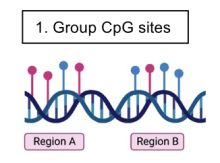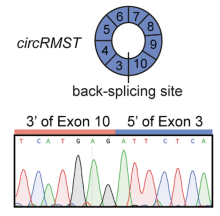
Uncovering How a Molecule Responsible for Immune “Brakes” Directs Skin Defenses
August 1, 2025
Weill Cornell Medicine researchers have discovered that PD-1—a molecule best known for putting the brakes on immune cells—also plays a critical role in helping T cells become long-term immune defenders in the skin. Early during infection, PD-1 acts like a steering wheel, guiding T cells to become protective resident memory T cells (TRM) that stay in place. These cells remember invading germs or cancer and quickly mount a response if that enemy reappears.

$1.1 Million Grant Funds Research on Rare Neurodevelopmental Disorder
July 28, 2025
A $1.1 million grant from the parent-caregiver-led Rare Bird Foundation to Weill Cornell Medicine is supporting the launch of a natural history study for a rare neurodevelopmental disorder that causes developmental delays and seizures called MEF2C Haploinsufficiency syndrome (MCHS).

Switch to Experimental Drug after Liquid Biopsy Detection of Breast Cancer Recurrence Improves Outcomes
July 24, 2025
A large prospective, randomized clinical trial in patients with advanced breast cancer has found that the use of liquid biopsy blood tests for early detection of a treatment-resistance mutation, followed by a switch to a new type of treatment, substantially extends the period of tumor control compared to standard care.

EIPM's 2Q External Newsletter
July 9, 2025
EIPM's Second Quarter 2025 External Newsletter
July 09, 2025
Dear Friend of the Englander Institute for Precision Medicine,
Welcome to second quarterly external newsletter of 2025!

July 2025 EIPM Director's Monthly Memo
July 9, 2025
July 2025 EIPM Director's Memo
Dear Friends & Members of the Englander Institute,
We are looking for EIPM Journal Club speakers through the end of the year to address topics like precision medicine, genetics, and artificial intelligence in medicine in top tier journals. Please contact Bhavneet Bhinder or Suzanne Jlelaty with questions or ideas.

New Precision Medicine Approach Identifies a Promising Ovarian Cancer Treatment
July 6, 2025
A pairing of two experimental drugs inhibits tumor growth and blocks drug-induced resistance in ovarian cancer, according to a preclinical study led by Weill Cornell Medicine investigators. The research reveals a promising strategy against this hard-to-treat malignancy, and more generally demonstrates a powerful new approach for the identification of effective regimens to treat genetically diverse cancers.

Deep Learning Helps Predict Treatment Response in Muscle-Invasive Bladder Cancer
June 10, 2025
Deep Learning Helps Predict Treatment Response in Muscle-Invasive Bladder Cancer

AI, Cancer, and HIV An interview with Dr. Olivier Elemento
June 10, 2025
Olivier Elemento, PhD, is Director of the Englander Institute for Precision Medicine and Associate Director of the Institute for Computational Biomedicine at Weill Cornell Medicine. His research group combines big data and artificial intelligence with experimentation and genomic profiling to accelerate the discovery of cancer cures. amfAR VP and Director of Research Andrea Gramatica, PhD, spoke with Dr. Elemento about his work and its potential applications in HIV research.

Treatment switch, liquid biopsy improve breast cancer outcomes
June 10, 2025
A large prospective randomized clinical trial in patients with advanced breast cancer has found that the use of liquid biopsy blood tests for early detection of a treatment-resistant mutation, followed by a switch to a new type of treatment, substantially extends the period of tumor control compared to standard care.

June 2025 EIPM Director's Memo
June 10, 2025
June 2025 EIPM Director's Memo
Dear Friends & Members of the Englander Institute,
I hope you enjoy reading about our recent departmental accomplishments, including news media coverage of our work, participation in major conferences & meetings, and impressive publications in top-tier journals like The New England Journal of Medicine, Nature Communications, and Science Signalingby a range of EIPM colleagues.
Thank you again for your continued hard work and dedication to our mission.
Sincerely,

